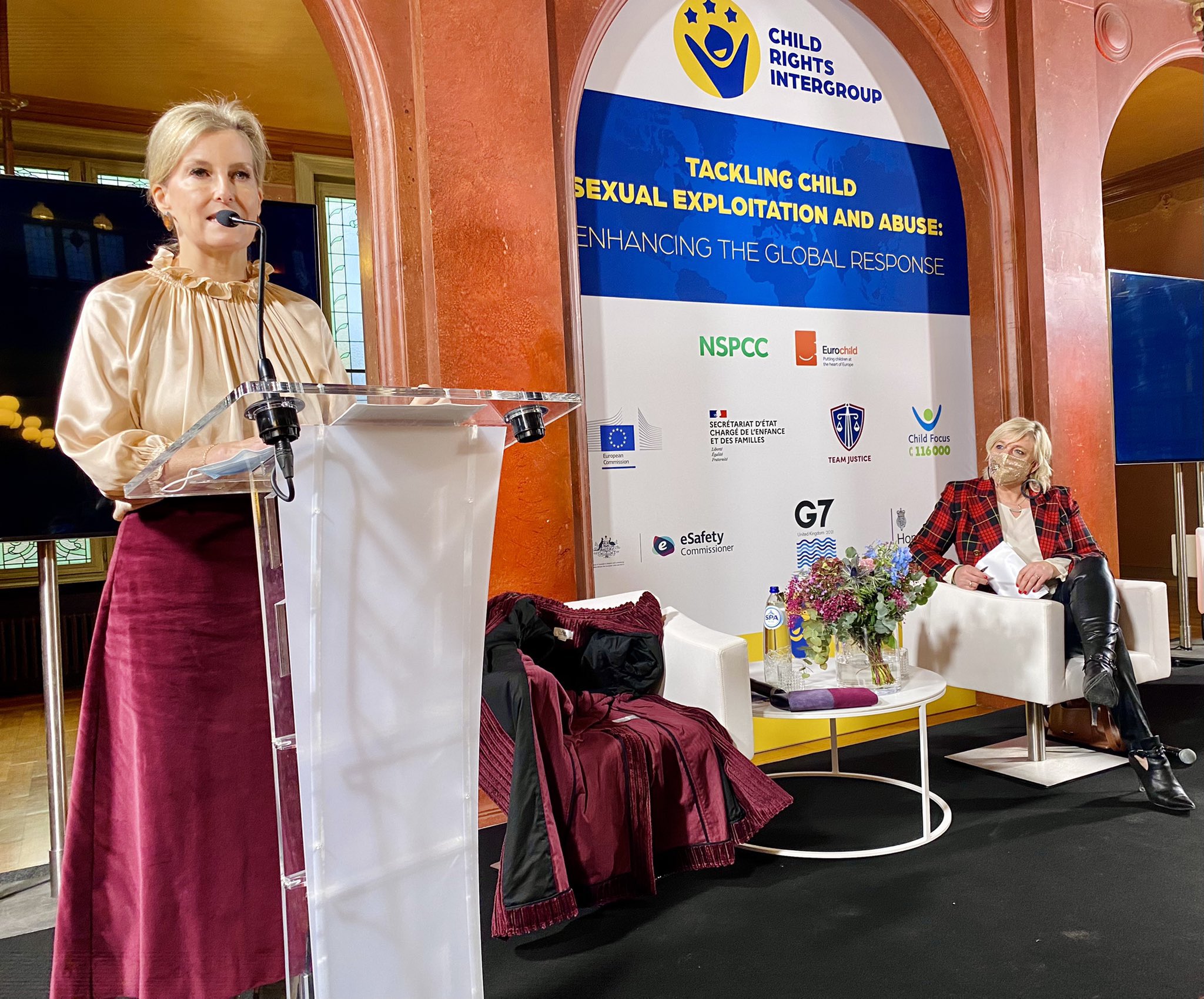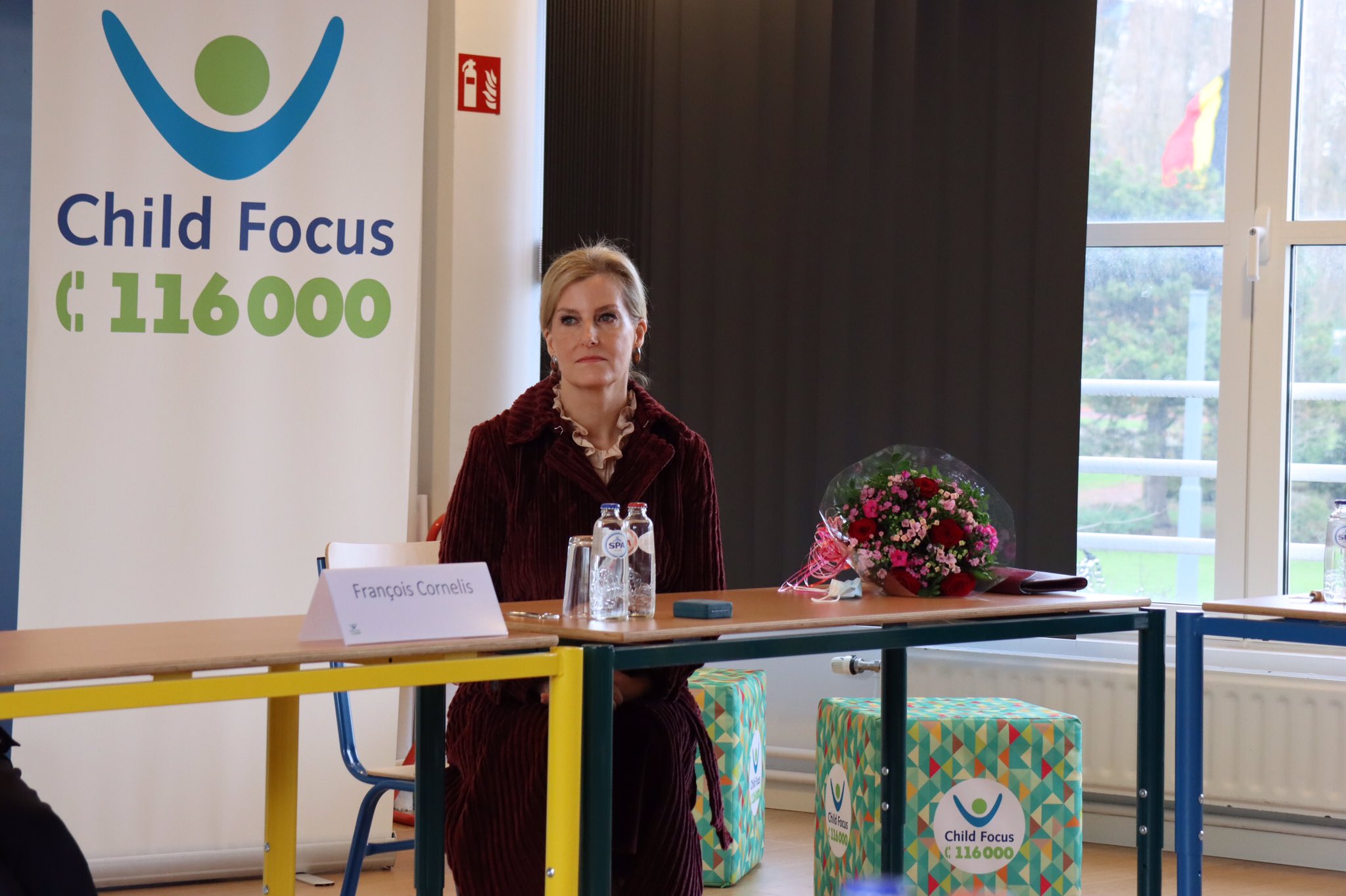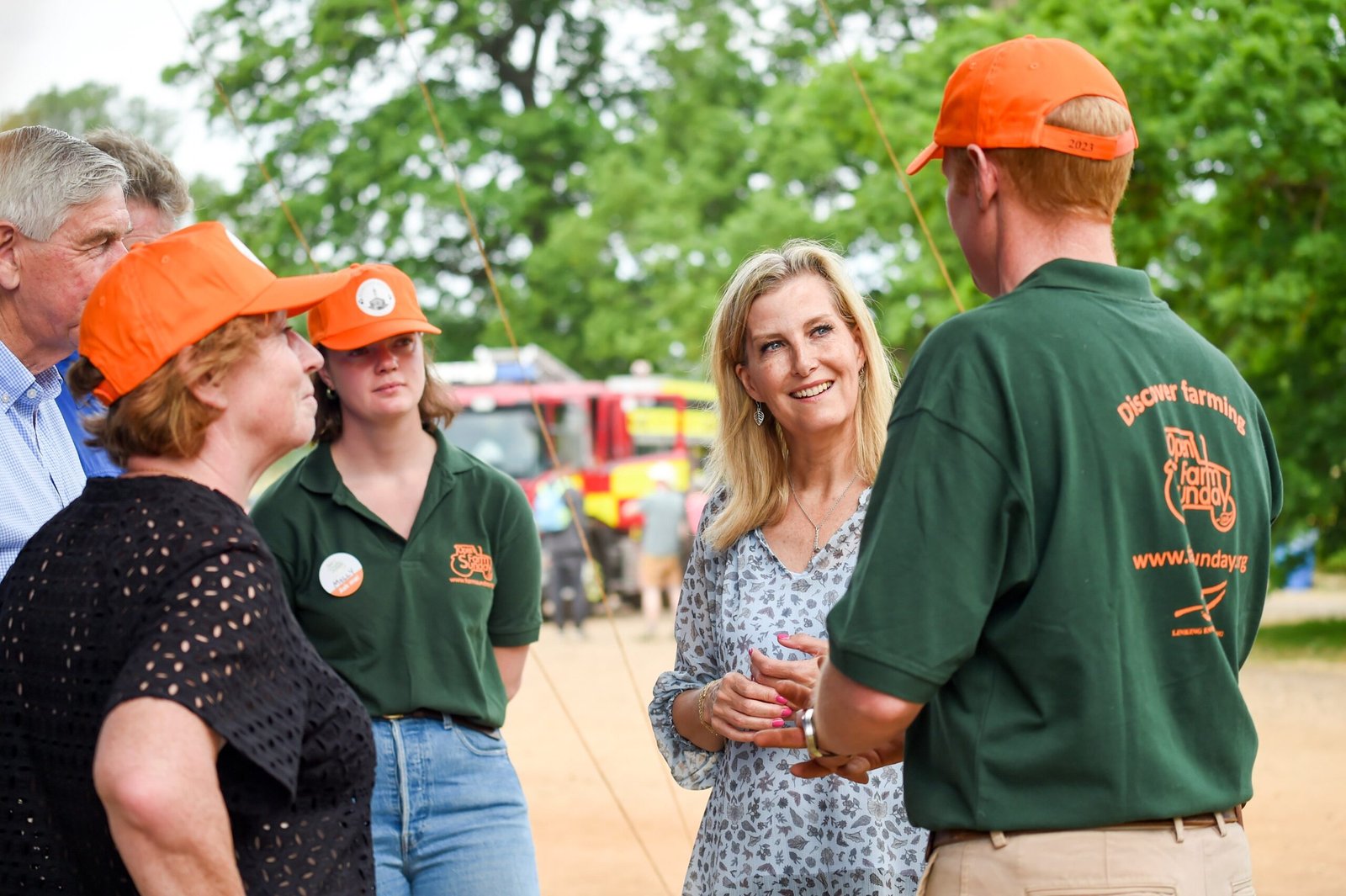The Countess of Wessex gave the keynote speech at the Tackling Child Sexual Exploitation & Abuse event in Brussels this week, and called the opportunity an ‘enormous privilege’.
Sophie addressed the ‘devastating consequences’ online child exploitation has on young people’s lives on Tuesday. She also gave some real life account of those who have experiences such terrors on the internet.
She spoke in her role as Patron of the National Society for the Prevention of Cruelty to Children (NSPCC).

Sophie spoke at the Tackling Child Sexual Exploitation & Abuse event in Brussels. (Royal Family/Twitter)
As a mother of two, Sophie noted how the internet ‘presents us all with enormous and positive opportunities to engage with each other online in ways we have never been able to do before’.
“However, this virtual opening also presents new and very dangerous threats to our children, including the way that the internet enables predators to commit truly horrific abuse within what should be the sanctity and safety of a child’s own home.”
The Royal noted how the abuse has ‘devastating consequences and severe long-term repercussions on their mental health, family and future relationships, with many experiencing trauma and long-term behavioural problems, and all too many attempting and committing suicide’.
It isn’t just one individual or organisation’s role to combat online child sexual abuse and exploitation, Sophie commented, and make the internet a place of safety for all. She said it ‘requires the strength and tenacity of us all to combat it’.

The Countess of Wessex called for all of society to help tackle online child exploitation. (Royal Family/Twitter)
HRH went on to share accounts of young people, who have been supported by the NSPCC, so their voices are heard. The names of the individuals had been changed for privacy reasons.
She started by talking about Ben’s story who began talking to a girl, but was actually a man. The man threatened to kill Ben’s parents if he didn’t send explicit content of himself. The scale of demands increased as did the threats to send the photos to Ben’s friends. This man then shared the pictures and videos with other men along with Ben’s telephone number and details.
Ben eventually tried to take his own life and was discovered by his mother. The police became involved and said he ‘couldn’t leave the house for ages’.
Sophie shared some statistics: “In the year ending March 2021 there were over 90,000 child sexual abuse and image offences recorded by the police in the UK, and around 200,000 children have sent, received or been asked to send sexual content to an adult.”

HRH spoke of the ‘devastating consequences’ children have faced online. (Royal Family/Twitter)
The Countess highlighted the ‘distressing reality’ of the COVID pandemic, as online usage played a greater role in children’s lives. She stated that the harm faced by children has gone up by 50% in some countries in Europe.
The Queen’s daughter-in-law has long worked with causes for young people. She is also patron of Childline, a role she took on last year, around the same time she spoke to Good Housekeeping about the issue of online safety.
Sophie noted that the challenge can be solved if we ‘balance the fundamental rights of all Internet users, particularly around privacy’. She said ‘we owe it to our children that they can freely and safely use online services that are fundamentally safe-by-design and we should expect that when companies are designing their products, or roll out new features, they must consider the risks to our children’.
She called on ‘innovation to identify child abuse on messaging services’ with ‘novel technologies and organisations should ‘take every reasonable step’ to detect online child exploitation.
Today, NSPCC patron, Her Royal Highness The Countess of Wessex, spoke to @Europarl_EN about the collective & global response needed to ensure children are kept safe from online sexual abuse online. @Childmanifesto pic.twitter.com/SgF95Ytpqw
— NSPCC (@NSPCC) December 7, 2021
The Countess of Wessex added ‘civil society organisations play a key role in highlighting where we need to go further and in highlighting the gaps between what companies say they are doing and the lived experience of children who may have an altogether different story.’
In her closing remarks, Sophie said this issue is one for us all to help solve and protect the best interests of future generations.
“We must also continue to work together to disrupt and detect harm. No one nation can claim to have all the answers, but every nation has a part to play in sharing solutions, exchanging best practices and co-operating on the international response to this most heinous of threats to our children.”




